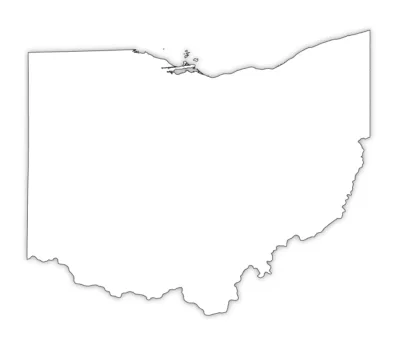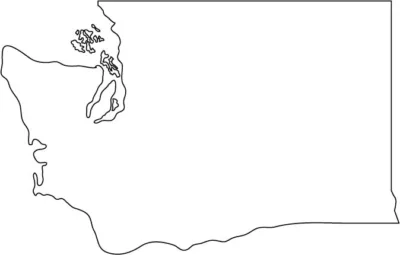
North Dakota Workers’ Compensation

- Real estate brokers or agents who have paperwork classifying them as independent contractors
- Farm and ranch workers
- Household domestic workers (such as maids)
- Employees of a place of worship
- Independent contractors
- Federal and railroad employees
In North Dakota, business owners can expect an average cost of $1.28 per 100 of covered payroll. For example a company with a total annual payroll of $100,000 will pay about $1,280 a year , $106 per month, for workers’ compensation insurance. This is only a rough estimate though, as factors such as your location, rates for staffing types (such as laborers vs. officer workers), and your claims history can significantly affect your rates. Additionally, the WSI provides a return-to-work program to assist injured workers in returning to work as soon as possible. The program includes medical case management, vocational case management, and reemployment assistance for injured workers.
Self-Insure Workers’ Compensation in North Dakota
While some states, whether they’re monopolistic or not, allow self-insuring, North Dakota does not allow it. All workers’ compensation insurance must come from the state fund.
Ohio Workers’ Compensation
 The Ohio Bureau of Workers’ Compensation (BWC) is the state’s workers’ compensation insurance provider. Employers can apply for coverage by submitting an electronic application on the BWC’s website or by mailing a hard copy to the BWC. In Ohio businesses with one or more employees are required to carry workers’ compensation insurance. Though there are a few exceptions on workers and owners who don’t need to be under the policy themselves:
The Ohio Bureau of Workers’ Compensation (BWC) is the state’s workers’ compensation insurance provider. Employers can apply for coverage by submitting an electronic application on the BWC’s website or by mailing a hard copy to the BWC. In Ohio businesses with one or more employees are required to carry workers’ compensation insurance. Though there are a few exceptions on workers and owners who don’t need to be under the policy themselves:
- Charity volunteers
- Cooks and gardeners who make less than $160 per quarter
- Most volunteers
- Sole owners
- Partnerships
- LLC companies acting as sole owners
- LLC acting as partners
- Family farm corporate admins
- An individual who is incorporated as a corporation
- Ordained or associate ministers of religious organizations
Ohio business owners typically pay an average of $0.67 per $100 of covered payroll. For example, a business with a total annual payroll of $100,000 will pay about $670 a year, which is about $55 a month for workers’ compensation insurance. Keep in mind this is just a rough estimate. There are other factors that can affect your premiums, such as where your business is located, varying staffing type rates, and your recent claim history.
Self-Insure Workers’ Compensation In Ohio
Your business is allowed to self-insure but there are a lot of requirements to get approved and it costs to keep the permission. Self-insurance is a privilege granted by the BWC to select employers. Instead of paying premiums to the Ohio State Insurance Fund, self-insuring employers cover any wages and medical costs for work-related injuries and illness out of pocket. This means your company assumes all liability and administers the workers’ compensation program themselves. To qualify you must:
- Have a minimum of 500 workers in the state of Ohio
- Been in business in Ohio for a minimum of 2 years
- Have an active policy with the state insurance fund at the time you apply for self-insurance
- Have 5 years of certified financial statements proving you can afford to self-insure
- Already have a plan in place to administer the workers’ compensation claims.
And that’s just to apply, if you’re approved your business isn’t necessarily avoiding having to pay the BWC by not having a premium with them. Self-insured businesses must pay the BWC and other programs. In addition to medical expenses and wage compensation, you must pay self-insurance dues. The BWC mandates semiannual assessments based on claim payouts. These payments support BWC and Industrial Commission of Ohio administration costs. SIEF, safety and hygiene services, and the self-insured surplus fund. The BWC will base your assessments on a percentage of your prior state-funded policy’s indemnity payments for the first five years of self-insurance. For three years, new self-insurance employers must pay the SIEGF 6% of their most recent annual payroll premium.
Washington Workers’ Compensation
 Most Washington state employers are required by law to carry workers’ compensation insurance. Which is available through the Washington State Department of Labor and Industries. While state workers’ compensation insurance is required for the majority of businesses, there are a few exceptions:
Most Washington state employers are required by law to carry workers’ compensation insurance. Which is available through the Washington State Department of Labor and Industries. While state workers’ compensation insurance is required for the majority of businesses, there are a few exceptions:
- Independent contractors
- Sole proprietors
- LLCs
- One domestic worker in a private home that works less than 40 hours a week
- Gardeners or maintenance workers in private homes
- Children under 18 who do farm work for their parent’s farm
- Employees who already receive coverage under the Federal Employees’ Compensation Act
- Volunteers for charities or religious organizations
- Salon workers and make-up artists who rent or lease their own space.
In Washington, business owners can expect to pay $1.57 per $100 of covered payroll on average. Thus, a business with a total annual payroll of $100,000 will pay approximately $1,570 per year for workers’ compensation insurance, or approximately $130 per month. This is only a rough estimate, as factors such as your location, the different rates for staffing types (laborers versus office workers), and your claims history can significantly affect your rates.
Self-Insure Workers’ Compensation In Washington
If your business has at least $25 million in assets and an accident prevention program, you may be able to self-insure. Every other employer must purchase workers’ compensation insurance from the state fund.
Wyoming Workers’ Compensation
 Wyoming’s state workers’ compensation fund is administered by the Wyoming Department of Workforce Services. However, if you have a lot of workers’ compensation insurance claims in the past and are considered high risk, you may not be eligible for the Wyoming public workers’ compensation program. Since you have to maintain coverage, you can contact the state’s assigned risk pool for “last resort” coverage in this situation. Almost every business in Wyoming has to cover workers’ compensation insurance for all of its employees. Although there are some exceptions:
Wyoming’s state workers’ compensation fund is administered by the Wyoming Department of Workforce Services. However, if you have a lot of workers’ compensation insurance claims in the past and are considered high risk, you may not be eligible for the Wyoming public workers’ compensation program. Since you have to maintain coverage, you can contact the state’s assigned risk pool for “last resort” coverage in this situation. Almost every business in Wyoming has to cover workers’ compensation insurance for all of its employees. Although there are some exceptions:
- Casual workers
- The majority of professional athletes
- Domestic workers in private households
- Private duty nurses who work for an individual
- Employees of the federal government
- Volunteers for some organizations
- Independent contractors and self-employed
- Partners
- Limited liability company (LLC) members
- Corporate executives
Workers’ compensation insurance is estimated to cost business owners in Wyoming $1.70 per $100 of covered payroll. For example, a business with an annual payroll of $100,000 will pay approximately $1,700 per year, or $141 per month, for coverage. However, these rates can vary based on numerous factors.
Self-Insure Workers’ Compensation In Wyoming
Unlike most other states, Wyoming’s workers’ compensation laws prohibit employers from self-insuring their claims. All employers in the state are required to purchase workers’ compensation insurance through the state or the risk pool depending on eligibility.
Additional Coverage In Monopolistic States
In monopolistic states, if you purchase workers’ compensation insurance through a state fund, your policy will not include employer’s liability coverage. Therefore, an employee is able to file a lawsuit against you for work-related injuries or illnesses. Employers’ liability in monopolistic states is typically covered under a general liability policy endorsement. Employers’ liability insurance obtained via endorsement is often referred to as stop-gap coverage. Moreover, due to the restrictive nature of monopolistic state markets, workers from these states cannot be covered by multi state workers’ compensation policies. If a business operates in multiple states, and one of those states is monopolistic, it must acquire separate workers’ compensation policies to ensure that all of its employees are covered.
EZ Can Help
Even though you don’t need help comparing policies as you can only buy through the state fund in monopolistic states EZ can still help. Your business will most likely need general liability (stop-gap) insurance as well as several other types of commercial insurance. With those, we can help you compare prices, plans, and companies available in your area to make sure you get the best coverage possible. We make the process of purchasing business insurance as simple and stress-free as possible. In addition, we give each customer our undivided attention.
Your dedicated agent will provide you with instant, no-obligation quotes as soon as you submit our form. Who will provide personalized service and make an effort to comprehend your needs. We want to ensure that you receive the best coverage at the most affordable cost. Our services are entirely complimentary, so check out your quotes right away. If you have further questions, please contact us at 877-670-3538. You will speak with a local insurance agent who can answer any questions you may have.
